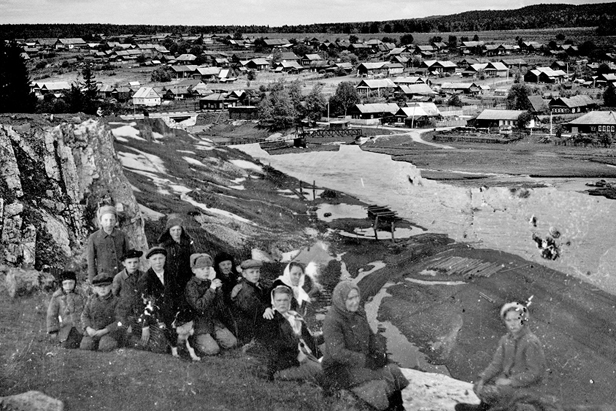

Staraya Utka (literally Old Duck) is a village in Sverdlovsk region in the Urals (about 1800 km from Moscow). It sprang to life and prospered after a metallurgical factory was built at the mouth of the River Utka in 1729.
Sergey Poteryaev
He is interested to see how the region will develop and how today’s residents will react to the changes. Does this place have any future?
Sergey Poteryaev
For this project, photographer Sergei Poteryaev used his own photographs and found archive footage of residents. "I was using montage to understand whether there are any parallels between the life of the people of Staraya Utka then and now," he says.
Sergey Poteryaev
In the 90s the local administration lost interest in developing the factory, and productivity fell. The plant in question — Staro-Utkinsky Metallurgical Factory — fed the growth of the settlement, so when its productivity fell, village life started to wither.
Sergey Poteryaev
Unfortunately, that is a typical scenario for many Ural villages. Traveling in the Urals, you come across the same landscape again and again: a dam, a reservoir and a factory, with some residential buildings scattered around.
Sergey Poteryaev
The Ural region is the most industrialized area on the planet. Total industrialization of the region began with the reforms of Peter I, while under Catherine II the Urals turned the Russian Empire into a global industrial leader.
Sergey Poteryaev
The late 18th century was a unique period in Russian history. By its close, more than 200 mining plants had been built in the Urals.
Sergey Poteryaev
This outstanding result was achieved through some very specific methods. National industry, private and state-owned, was exempted from the laws of the empire and turned into a kind of state within a state.
Sergey Poteryaev
Mining works were built in the Urals with their own laws, court, bureaucratic hierarchy, and administrative division, at the heart of which was the capital — Yekaterinburg.
Sergey Poteryaev
This industrial “state within a state” engendered a new and unprecedented cultural phenomenon, which sociologists in the 20th century called "mining civilization."
Sergey Poteryaev
It was a version of the Russian world, but with a special system of values and a particular mythology with distinctive cultural heroes. The Russian mining and metallurgical identity is synonymous with the Urals and the benchmark of industrialism.
Sergey Poteryaev
In most cases the factories are no longer working, so the fate of the villages is clear — decay. In more fortunate places some work is provided by timber plants that appear in place of closed-down deteriorated factories.
Sergey PoteryaevSubscribe
to our newsletter!
Get the week's best stories straight to your inbox